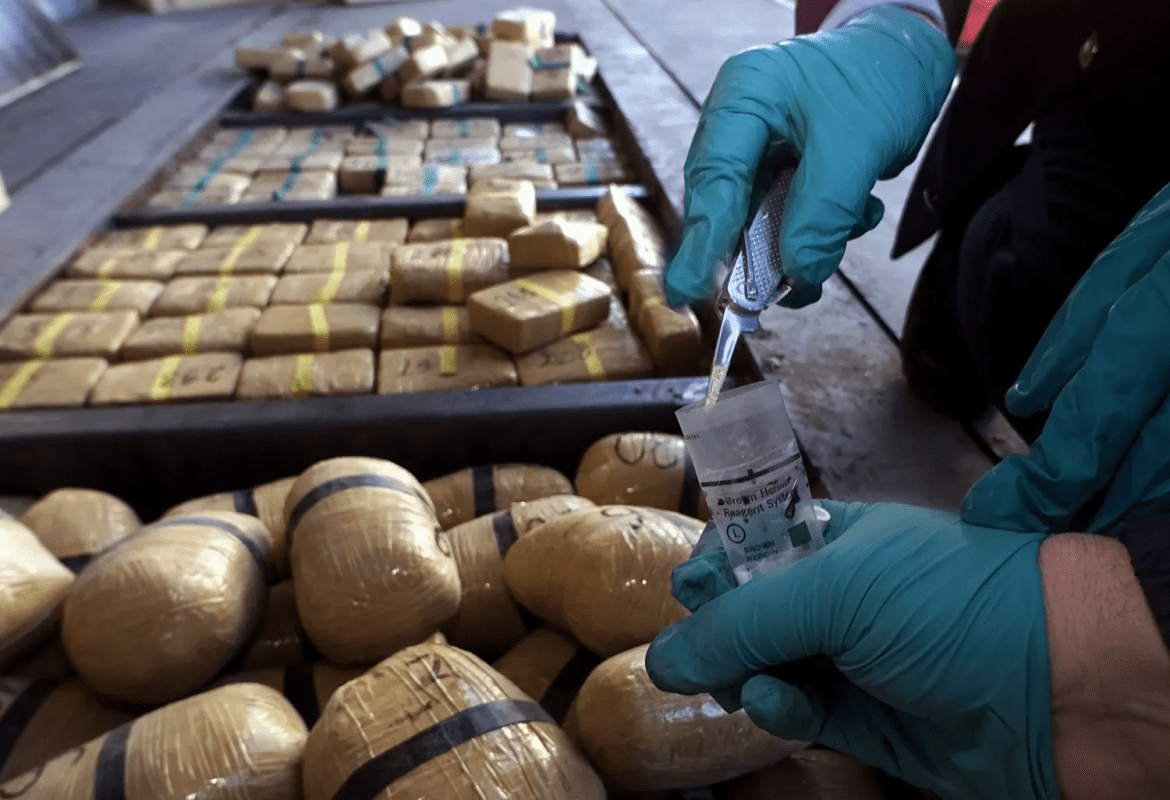AI Generated Summary
- A number of retired ISI officers have made Canada their home, and there are indications that they may be leveraging connections within the Sikh community, potentially exploiting them for ISI’s drug operations in the country.
- The document underscores the collusion between Pakistan and Afghanistan in the narco-trade, with the ISI’s pivotal role in entwining jihadist operations with narcotics for funding.
- It is a geopolitical tool, wielded by clandestine agencies and nefarious entities, with ramifications echoing from the mountains of Afghanistan to the bustling streets of Canadian cities.
The global narcotics trade – an intricate web of operations that spans continents – is more than a public health issue. It is a geopolitical tool, wielded by clandestine agencies and nefarious entities, with ramifications echoing from the mountains of Afghanistan to the bustling streets of Canadian cities. At the epicenter of this web lies Pakistan’s Inter-Services Intelligence (ISI), whose role in using the drug trade to fund terrorism is now becoming unmistakably clear.
The revelations in NATO’s 2022 DEEP report, “Narco-Insecurity, Inc.”, are deeply troubling. The document underscores the collusion between Pakistan and Afghanistan in the narco-trade, with the ISI’s pivotal role in entwining jihadist operations with narcotics for funding. These terror outfits are not just fueled by ideology; they are also bankrolled by the illicit drug trade.
The U.S. State Department’s annual reports on narcotics have, over the years, highlighted Pakistan’s role as a major transit country for Afghan opiates and hashish. The challenges in law enforcement and border control, coupled with political factors, have been cited as reasons for the persistent problem.
In the case of Broadsheet LLC vs. Islamic Republic of Pakistan, the primary focus revolved around issues of corruption and asset recovery. However, within the proceedings, there were emerging allegations suggesting the ISI’s potential involvement in certain illicit activities. It’s crucial to note that such claims require thorough and proper validation.
The drug routes, namely the ‘Golden Crescent’ and the ‘Golden Triangle’, are the primary arteries of this illicit trade. Afghanistan’s poppy fields provide the raw materials, and its strategic positioning within the ‘Golden Crescent’ makes it an ideal distribution center. But the journey doesn’t stop there.

Introducing the Balkan route, a lesser-known but equally critical pathway, it’s here that ISI’s involvement becomes more pronounced. To reach the North American shores, drugs are typically transported by sea, and then ferried by land. The ISI, leveraging its vast network, dispatches these narcotics, ensuring their safe passage into the United States and Canada, often under the very noses of law enforcement agencies.
The arrest of Harvinder Singh, smuggling a staggering $3.5 million worth of cocaine, and Ahmed El Kady, caught with almost 400 kilograms of the narcotic, are not isolated incidents. They are symptomatic of a deeper malaise, hinting at ISI’s operational capabilities in foreign territories.

Canada, perceived by many as an oasis of peace, isn’t immune to ISI’s machinations. Renowned voices, including the late Tarek Fatah and military analyst Ayesha Siddiqa, have raised alarms about the active presence of ISI agents in Canada, well beyond mere espionage. Their penetration into western think-tanks amplifies the extent of their infiltration.
The arrest of Harvinder Singh is not an isolated incident. The Canada police, in 2021, after an almost yearlong operation, busted an international drug racket by arresting more than 30 persons, many of them sikhs (CBC News). In 2022, seven people, including four Sikhs, were arrested in Brampton, Ontario for their involvement in a large-scale drug trafficking ring (The Globe and Mail). The ring was allegedly responsible for importing and distributing cocaine, heroin, and crystal meth across Canada.
Recent events have brought the Sikh trucker community in Canada into focus. While it’s essential to avoid generalizations or stereotypes, some arrests, such as that of Yograj Singh linked to Canada-based gangsters, suggest possible ISI-backed narco-terror modules. A number of retired ISI officers have made Canada their home, and there are indications that they may be leveraging connections within the Sikh community, potentially exploiting them for ISI’s drug operations in the country.
It underscores the depth and breadth of ISI’s reach, leveraging various communities for their objectives.
Larry Johnson’s poignant statement during a Senate Hearing on NARCO-TERRORISM serves as a grim reminder. The casualties from terror attacks in India, outstripping even Israel, with connections tracing back to elements within the ISI, underscore the scale and impact of the drug-terror nexus.
As the world grapples with the dual threats of narcotics and terrorism, the connection between them – facilitated, as evidence suggests, by state agencies like the ISI – cannot be ignored. For the sake of global security and to dismantle this perilous nexus, a unified, international response is imperative.




